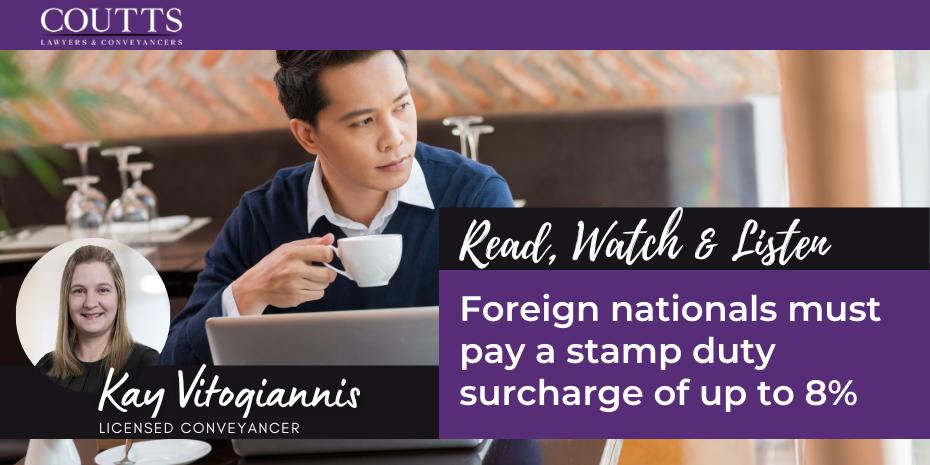KEY TAKE-OUTS:
- A guarantor is a person who guarantees that a loan will be repaid and uses their own home as security for another person’s mortgage.
- Being a guarantor comes with risks and obligations and it is important to be fully informed on what those risks and obligations are by obtaining independent legal advice prior to signing guarantor documentation.
- A guarantor can be removed at any time and there are a few different options as to how to remove the guarantor, which will depend on individual circumstances, such as an updated valuation of property, refinance, sale, or payout.
What is a Guarantor?
A guarantor is someone, usually a family member, who assists a purchaser to secure a home loan usually by agreeing to use their own property as additional security for the loan. This enables a purchaser to obtain loan approval which they would otherwise not be able to secure on their own income or obtain a larger loan sum than they would be able to receive without a guarantor.
A guarantor is essentially guaranteeing to the bank that the home loan will be repaid. In the event that the purchaser, for any reason, does not meet the repayments of the loan, the obligation to make the repayments then falls to the guarantor.
Risks and consequences of becoming a Guarantor?
If a guarantor has used their own property as security for the loan, and the purchaser does not make the loan repayments, then there is a real risk that the guarantor could lose their property and/or suffer serious financial loss.
There are other considerations when deciding whether or not to become a guarantor for someone besides the ability to pay the debt, should the purchaser default on the loan. Being a guarantor will reduce a guarantor’s future borrowing capacity because the guarantor loan will be treated as a debt of the guarantor in all future finance applications. In most cases, a guarantor has a mortgage placed on their own property to secure the loan of the purchasers, this could seriously affect a guarantor’s ability to sell their own property, should they wish, as the purchaser’s loan must either be paid out or you must be removed as a guarantor. There is also the human factor to consider as being a guarantor may impact the personal relationship with the purchasers if there is any financial hardship on either side.
It is a requirement that anyone who will be guaranteeing a loan for someone else obtain their own independent legal advice in relation to the guarantee so that they are fully informed of all risks and consequences associated with becoming a guarantor.
When can a Guarantor be removed from the Mortgage loan?
A guarantor can be removed from the loan at any time however this does not automatically occur, the loan provider must be contacted in order to begin the process to remove a guarantor.
As long as either the loan has been paid out or paid down to an amount that the purchasers can guarantee on their own, without needing the remaining loan balance to be guaranteed by a third party, or the value has increased to a sufficient amount that the purchaser’s equity in the property now allows the removal of the guarantor.
Ideally, a purchaser would want to have at least twenty percent equity in the property before considering removing the guarantor. This is to avoid paying Lenders Mortgage Insurance, the cost of which can run into thousands of dollars.
Also, at the time of settlement of a sale of the property or the full payment of the home loan, the guarantor is relieved of their obligations under the guarantee.
How to remove a Guarantor?
There are a few options available in order to remove a guarantor as follows:
Obtain a new valuation of the property
If a purchaser’s land value has risen sufficiently to allow the removal of the guarantor, they will simply need to contact the home loan provider and the home loan provider will arrange for a valuation to be performed. If the valuation shows that the purchasers now have sufficient equity in the property and that they no longer require a guarantor, they can choose to keep the existing home loan and just have the guarantor removed from the loan. The purchasers would then simply continue making the repayments as normal until the loan is paid out or the property is sold.
Pay down the guaranteed amount of the loan
This is similar to the above in that the purchasers simply need to have paid down the loan to show that they now have sufficient equity in the property and that they no longer require a guarantor, they can choose to keep the existing home loan and just have the guarantor removed from the loan. The purchasers would then simply continue making the repayments as normal until the loan is paid out or the property is sold.
Refinance
If you wish to you can refinance the loan without a guarantor. This would require the purchasers to apply for a new home loan without a guarantor, essentially paying out the old mortgage and obtaining a new mortgage.
Sell
When a purchaser sells a property the mortgage is paid out in full and removed from the Title. The home loan provider will also remove any registered mortgage over the guarantor’s property at this time and the guarantors’ obligations in regard to the home loan will cease as the loan is now entirely paid out.
Pay out the loan entirely
If the home loan is paid out by the purchaser entirely, then the purchasers need to request the home loan provider discharge the mortgage on the property’s Title and, as above, when the mortgage is discharged any mortgage over the guarantor’s property will also be removed.
ABOUT CHRISTINE BASSETT:

Christine is a Licensed Conveyancer and Justice of the Peace at Coutts’ Narellan office. Since joining Coutts Lawyers & Conveyancers in 2013, Christine quickly immersed her interest in the property and has since completed studies of Conveyancing Law and Practice at Macquarie University; and is accredited with the Australian Institute of Conveyancers NSW.
For further information please don’t hesitate to contact:
Christine Bassett
Licensed Conveyancer & JP
info@couttslegal.com.au
1300 268 887
Contact Coutts today.
This blog is merely general and non specific information on the subject matter and is not and should not be considered or relied on as legal advice. Coutts is not responsible for any cost, expense, loss or liability whatsoever in relation to this blog, including all or any reliance on this blog or use or application of this blog by you.



